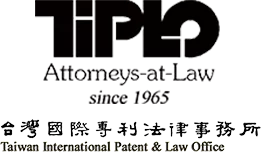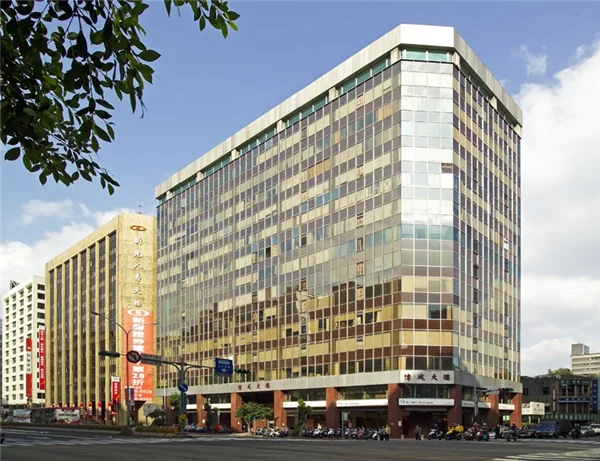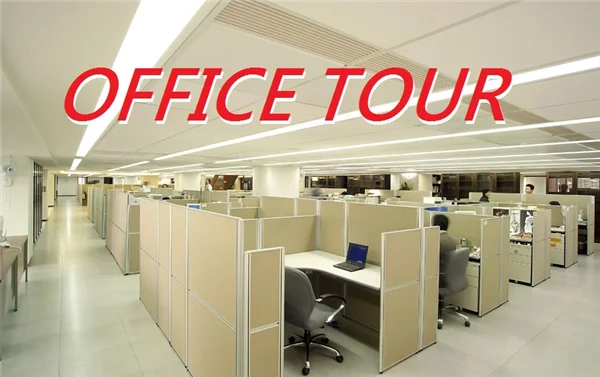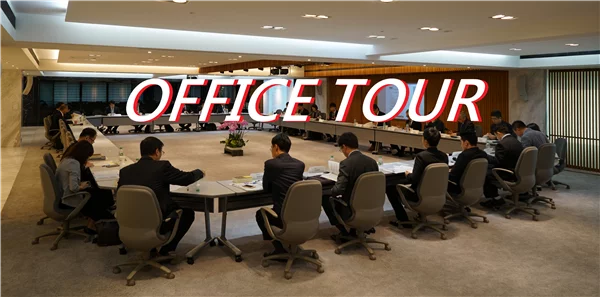China-Made Inferior Goods Bearing False Labeling of Country of Origin Rampant in Market. The Customs Strengthening Border Raid Action To Prevent Import of Suspected Goods Into Taiwan.
E100726Y2・E100725Y2 Aug. 2010(E129)
The cross-strait relationship is getting closer constantly after the signing of ECFA, and it is impossible to stop the inevitable dumping of China-made low-price goods in Taiwan. However as consumers in Taiwan usually lack having confidence in China-made goods, dishonest dealers try to gain illicit profit by selling goods bearing misidentified labeling of the country of origin in manner which is renovated constantly. Since the Ministry of Economic Affairs (MOEA) established the “Cross-Department Irregular Imported Goods Joint Inspection Team” on 5 May 2010, the team has conducted 68 joint raid actions until 24 July, seizing large quantity of goods with false labeling or cut labeling in the market. To deal with the increasing criticism from all sectors, the Bureau of Standards, Metrology & Inspection (BSMI) responded that the irregular goods were “too rampant to be stopped” and it would continue strengthening the raid action and re-check against suspected imported goods and discuss the result of joint raid actions for deliberations of enforcement measures. The cases involving seized goods bearing false labeling of country of origin or false quality labeling under provision of the Article 255 of the Criminal Code will be transferred for trial under the judicial and prosecuting apparatus.
In order to expressly define the merit, Bureau of Foreign Trade amended and promulgated the “Principles for Handling Cases Involving Imported Goods Bearing False Labeling of Country of Origin” on 21 July, which expressly provide that goods bearing “multi-country origin” shall constitute bearing false labeling of country of origin and no customs clearance of goods with such labeling will be approved and specific discipline shall be rendered, if the labeling is not corrected.
The “Cross-Department Irregular Imported Goods Joint Inspection Team” was formed by multi-ministries, consisting of members including Bureau of Standards, Metrology and Inspection, Commerce Department, Central Region Office, Intellectual Property Office, Industrial Development Bureau and Bureau of Foreign Trade of the MOEA, Directorate General of Customs of Ministry of Finance, National Police Agency of Ministry of Interior, Prosecutors Office for Taiwan High Court and Investigation Bureau of Ministry of Justice, Consumer Protection Commission of Executive Yuan, Council of Agriculture of Executive Yuan, Department of Health of Executive Yuan, and various municipal city governments and county(city) governments. Executive Yuan also organized the “Suspected Imported Goods Control Meeting Report” to audit any suspected imported goods, including those with suspected labeling (including false labeling of country of origin, e.g. false labeling or cut labeling, false product name labeling, false product descriptions labeling), irregular quality, irregular import procedures (including false declaration of origin, tax regulations, and smuggling), and irregular property rights (including infringement upon trademark right and copyright, etc.). In addition to the raid action against goods displayed for sale in the market, the customs raid actions were also enhanced to prevent any suspected goods bearing false labeling and cut labeling from being imported into the domestic market.
Meanwhile, in order to enhance inspection against the goods imported from China, the BSMI will strengthen the border inspection against the imported goods listed in the goods under compulsory inspection defined in the Commodity Inspection Act to prevent unqualified goods from entering the domestic market. With respect to any goods other than those under compulsory inspection, the BSMI will strengthen the examination against samples purchased from the market to verify the quality thereof and, if necessary, to include such goods into the compulsory inspection. Directorate General of Customs and Coast Guard Administration will also utilize the risk management mechanism to screen high-risk suppliers and strengthen the customs' border inspection and the raid actions in the highlight sea area where smuggling activities are rampant.
According to the BSMI, the joint raid actions against suspected imported goods have been conducted for approximately one quarter, in which it has also organized several propagations. By equally emphasizing raid actions and propagations, the BSMI has generated specific results. Further, it will strengthen the propagations again at the end of July, and if the joint raid action to be conducted in August finds any stores suspected of displays for selling goods bearing false labeling or cut labeling, the BSMI will publicize the stores’ names and the information about brand, supplier, producer, manufacturer or importer.
§Amendments to Regulations on False Labeling of Country of Origin of Imported Goods
1. Importers shall be prohibited from importing any goods bearing false labeling of country of origin. Any goods per se, and inner and external packaging, specification, catalogue, instruction leaflet or picture thereof with false labeling of country of origin or any other characters or pictures that would lead consumers to misidentify the country of origin shall be handled in the following manners:
1.1 Where any foreign goods (other than vacant containers, tags or labels) bearing false labeling of country of origin (e.g. Made in Taiwan, Made in R.O.C., Made by local manufacturer or other similar characters representing manufacturing, or made by any country or area other than the country of origin) that were imported by the importer, or bearing any other characters (e.g. TAIWAN TAIPEI, multi-country of origin labeling, local supplier’s name and address, made by XXX Company, or any country or area other than the country of origin, manufacturer’s name and address, etc.) or pictures that would lead consumers to misidentify the country of origin, the importer may apply with the customs for correction. The customs clearance will not release the goods until the issue of goods bearing false labeling is resolved; otherwise, the goods in issue will be returned abroad and the Bureau of Foreign Trade (“BFT”) of the MOEA may render specific discipline, unless:
1.1.1 the importer imports the semi-finished goods for "shoe vamp” or “shoe sole” (including those made in Mainland China and permitted to be imported upon publication) with "MADE IN TAIWAN” labeling or equivalents.
1.1.2 the importer imports any semi-finished goods other than those referred to in the preceding subparagraph, and the labeling of country of origin thereof is specially approved by the BFT.
1.1.3 the importer imports the goods without bearing false labeling of the country of origin but with labeling indicating name and address of the local supplier already identified as “importer” or “agent/distributor”, or equivalents.
1.1.4 the importer imports the goods with the labeling of the country of origin for raw materials, or the country or area where the trademark is registered, or the mark of such country, but with significant labeling of country of origin.
1.2 Import of vacant containers, tags or labels:
1.2.1 The customs should release those goods with locally-made labeling per se (e.g. Made in Taiwan, Made in R.O.C., Made by local manufacturer, or equivalents) or any other characters (e.g. Taiwan, Taipei, or local manufacturer’s name and address) or pictures intended to signify the packaging or product made in Taiwan.
1.2.2 Notwithstanding, where the goods bear the labeling about foreign country (or area) of origin, foreign manufacturer’s name and address, brand, trademark or equivalents intended to signify the packaging or product made by foreign country, or that would lead consumers to misidentify that the contents to be packaged or labeled are made by foreign country, the importer may apply with the customs for correction. The customs will release the goods until the issue of goods bearing false labeling is resolved; otherwise, the goods will be returned and the BFT may render specific discipline, unless:
1.2.2(A) The imported goods are used for the purpose of packaging or labeling the products made by foreign countries or foreign manufacturers (e.g. bulk cargo on a knock-down selling basis, or replacement of the damaged packaging of the imported goods).
1.2.2(B) The imported goods are samples for display (or exhibition) affixed with the stamp certifying “for display (or for exhibition)”.
1.2.2(C) The imported goods do not bear "made by foreign country (or area)” labeling but bear the labeling about a foreign manufacturer’s name and address, brand, trademark or equivalents with the contract or license document given by the foreign manufacturer, which are provided for the purpose of packaging or labeling the exported products processed or manufactured by a local manufacturer commissioned by the foreign manufacturer.
1.3 Products of country of import:
1.3.1 Customs clearance of the textile products re-imported after being re-processed that comply with the country of origin labeling requirements and are specially approved by the BFT in writing, with the “MADE IN TAIWAN” labeling or equivalents, shall be approved.
1.3.2 For the goods re-imported after being returned, or repurchased, which bear the “Made in Taiwan” labeling, the importer may submit the relevant evidence to the customs office, and customs clearance of such goods will be approved after they are proven to be the exported products made in Taiwan which are re-imported. Where the importer fails to submit the evidence, such goods shall be treated as goods made by a foreign country.
2. Where the local laws and regulations provide any other requirements regarding the labeling of imported goods, such requirements shall also apply. (2010.07)
/DC














